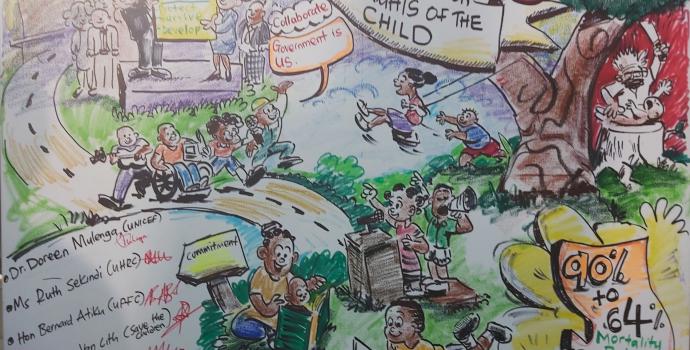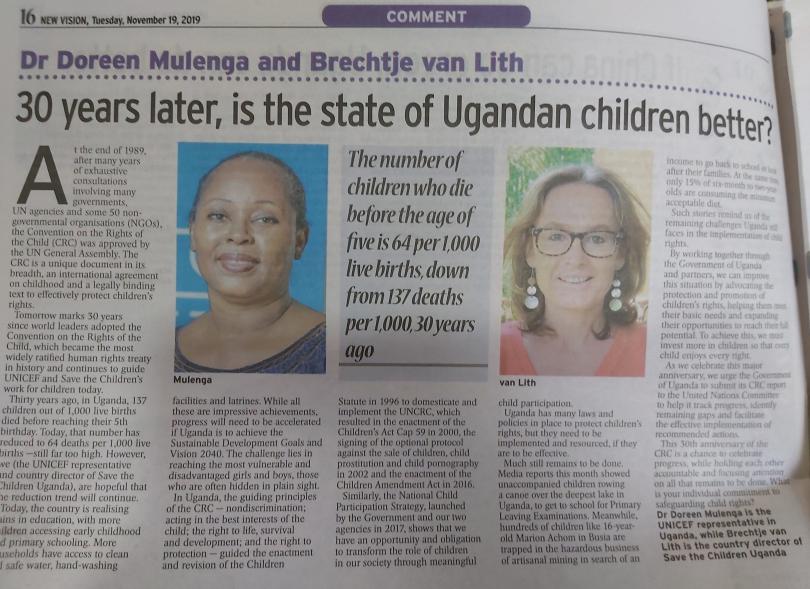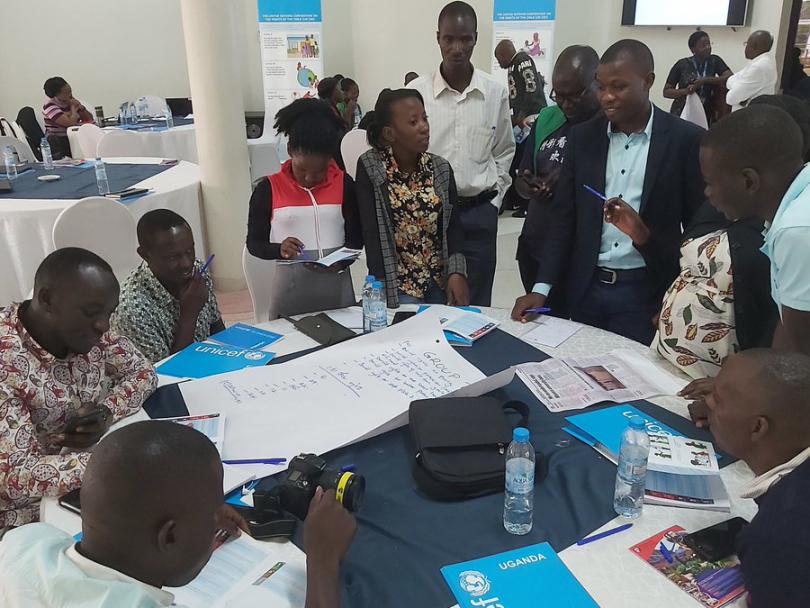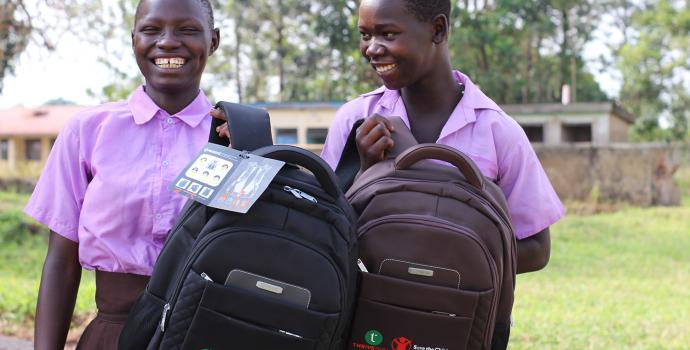Where are we now? 30 years of the Convention on the Rights of the Child

Above: To mark the 30th anniversary of the Convention on the Rights of the Child, Save the Children spoke at Uganda's national event alongside the Ministry of Gender, Labour & Social Development, UNICEF, Uganda Human Rights Commission, the National Children's Authority, Uganda Parliamentary Forum for Children, and child representatives. This drawing by Richard Musinguzi captures some of the discussions about progress and challenges.
The Convention on the Rights of the Child (CRC) is at the heart of everything that Save the Children does, and there has been a lot of progress in Uganda in the 30 years since it came into existence.
Today, fewer children live in poverty and more children go to school. The number of Ugandan children dying before their fifth birthday has been cut by 66 percent. These are enormous achievements.
But there is still a very long way to go.
Too many children are being left behind and not seeing the benefit of this progress. We see growing inequality – all children have the same rights, but their experience of childhood is very different depending on whether they live in Karamoja or Kampala, in a poor or wealthy family.
So what needs to be done?
Firstly, laws and policies need to be put into practice.
In Uganda we have some very positive laws and policies in place to protect children’s rights – but they are not effectively resourced, implemented or disseminated. Many people, especially in rural areas, are unaware of them or do not take notice, and they are rarely enforced.
Child marriage and corporal punishment, for example, are both illegal yet they are still widespread and a daily threat to children.
There needs to be more investment in implementation of these laws, but we also need to invest more energy in changing community attitudes so these practices are no longer accepted.
Secondly, we need to listen to children more, and ensure they are able to participate in the decisions that affect their lives.
One of the great things about the CRC is that it changed how people perceive children. Children used to be seen as belonging to adults but the CRC gives them legal recognition as unique individuals with their own rights. It guarantees children’s right to express their views and for those views to be taken into consideration.
This is something that we all need to improve. We support debate clubs and children’s councils where children are full of ideas and opinions about their society, and come up with solutions to the challenges we face. We need to ensure their voices have a platform to be heard and listened to in all parts of society – from community leaders and parliament to NGOs and the media.
Save the Children and UNICEF supported the Ministry of Gender, Labour & Social Development to develop Uganda’s first National Child Participation Strategy, and we are now working to ensure it is rolled out in communities.

Above: A joint opinion piece by the heads of Save the Children and UNICEF published in the New Vision to mark 30 years of the CRC
Education is the foundation of Uganda’s future
Uganda’s introduction of Universal Primary Education brought significant improvement in primary enrolment, but most children still end up dropping out before they can complete primary school – often because they cannot afford it. To live up to the commitments in the CRC we need to ensure that primary education is accessible and affordable for all children.
No child should be denied an education due to poverty.
We also need to ensure better quality learning. 80 percent of children in P3 (third grade of primary school) do not have P2 level competency in literacy and numeracy. Better support for teachers and bringing down class sizes are crucial for improving standards.
Yet the percentage of the national budget allocated to education has been steadily decreasing in recent years, and Uganda’s expenditure on primary education is among the lowest in East Africa. There must be proper investment in education if we are to move forward.

Above: To mark the 30th anniversary we worked with UNICEF and others to hold a workshop for journalists from all over Uganda, to increase awareness of the CRC and child rights
Finally, we need to end violence against children.
This is a daily priority for Save the Children, but to succeed we need to work together. Along with Plan International, World Vision, Child Fund, SOS Children’s Villages and Terre des Hommes we have set up a coalition called Joining Forces to end violence against children in schools.
Schools should be safe places where children can learn without fear of violence. Yet 75 percent of children in Uganda have been beaten at school, and most girls and boys say their first experience of violence is at school.
If we are to improve the quality learning and child participation, and achieve many of the other outstanding challenges in fully implementing the CRC, then we must make sure that schools are places where children feel safe and happy.




